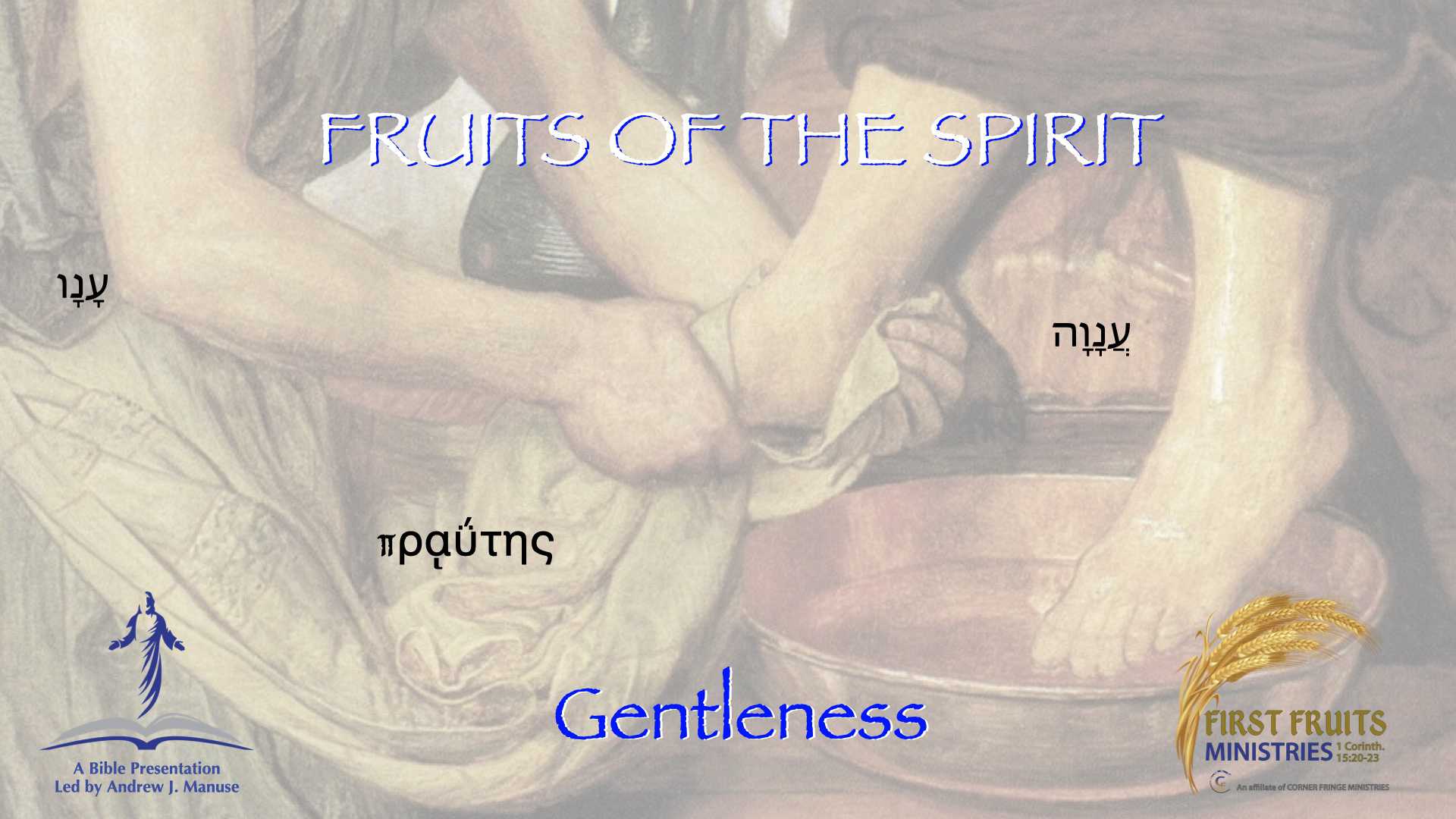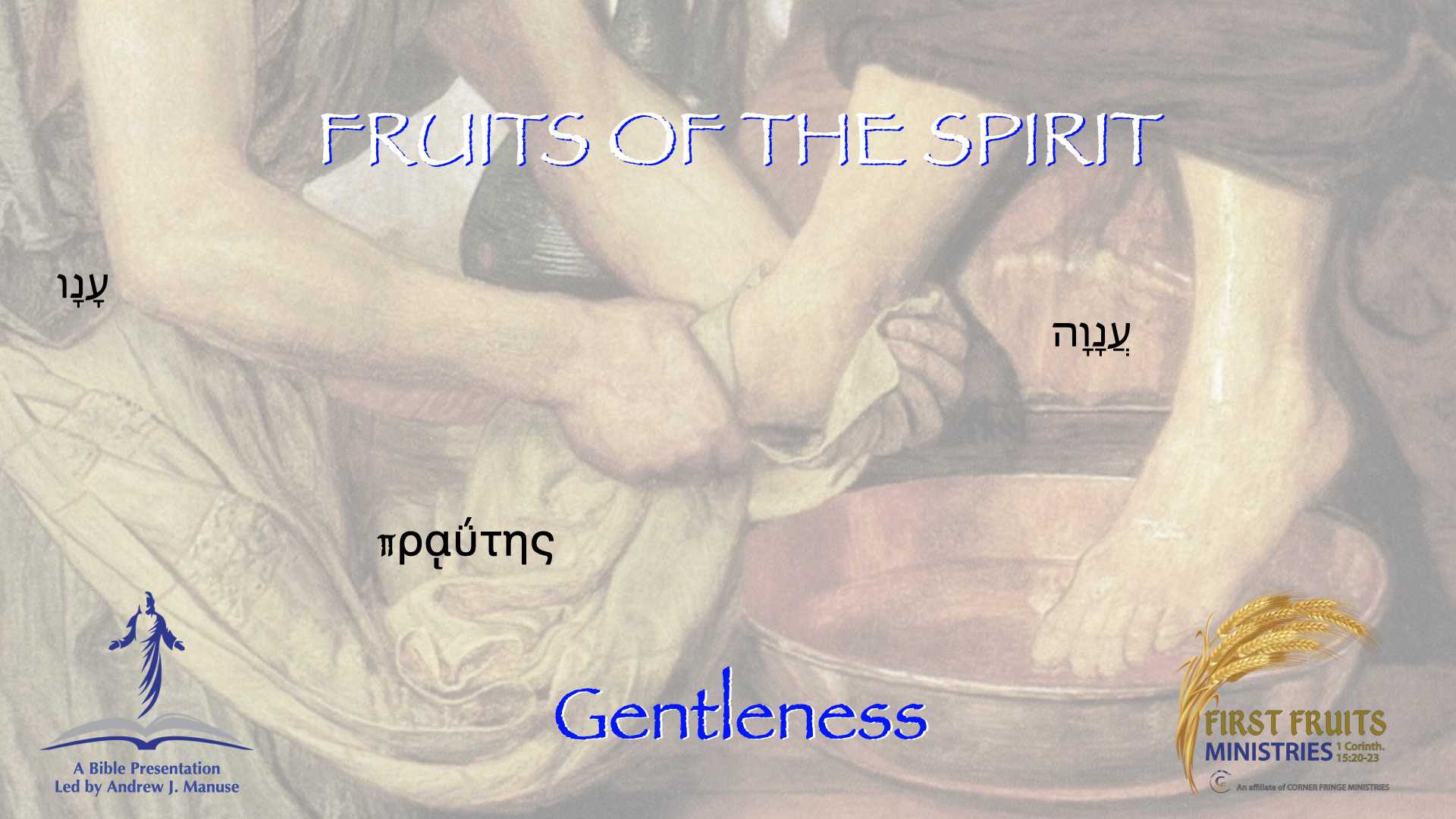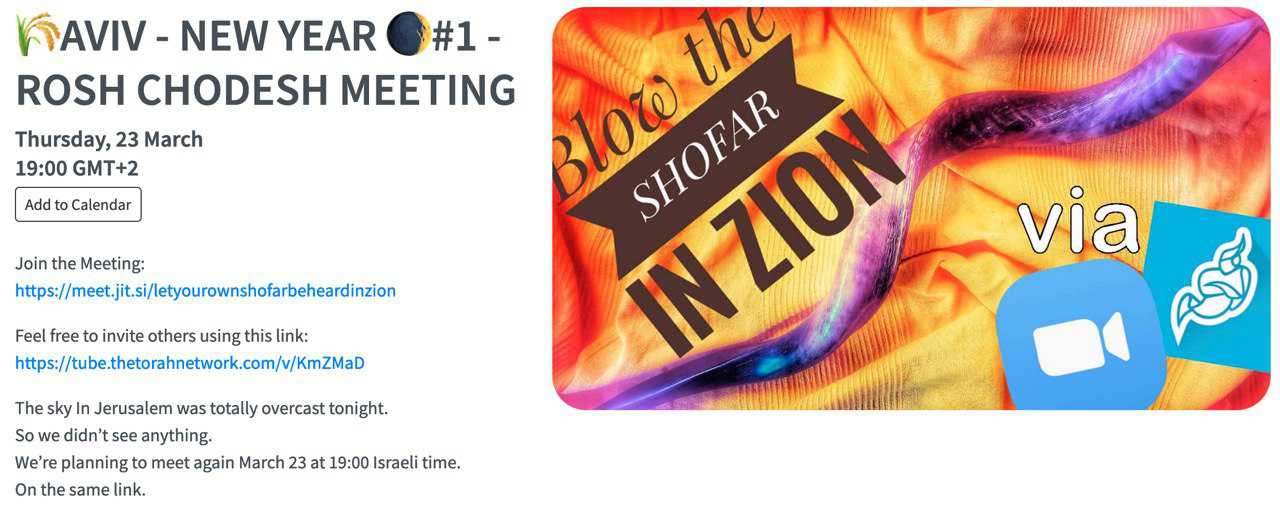Watch
Events
Articles
Market
More
Bring no more vain offerings; incense is an abomination to me. New moon and Sabbath and the calling of convocations— I cannot endure iniquity and solemn assembly.
Isaiah 1:13
Sacrifices were usually a time for celebration, not mourning. (See Nehemiah 12:43, for example.), but there's no point in sacrificing and celebrating if God isn't there to celebrate with us. Isaiah 1:11-15



https://www.lifesitenews.com/n....ews/israel-consideri



Please be aware of this and if you use this kind of product please check your supply — https://www.dailymail.co.uk/ne....ws/article-11892027/



Thought for Today: Thursday March 23:
May YHVH Himself restore all that you have lost which you thought you would never get back. May He heal those deep wounds in your soul, that you thought you would never get over. May He pour out an abundance of Joy, Hope, Grace and blessings that makes you celebrate even before the answer comes. May a thriving, rich faith mark be upon your daily life in every moment. You have access to the Throne Room to sit at His Feet --- may you live accordingly.



SERIES K --- ISRAEL’S GOLDEN AGE --- LESSON 06
A PROMISE KEPT
KING DAVID IS KIND TO SAUL’S GRANDSON
From 2 Samuel 5:13-16; 9; 1 Chronicles 3:5-9; 14:3-7
While he lived at Jerusalem, King David took other wives and concubines and had many children. Bathsheba the daughter of Ammiel became the mother of four of his sons; Shimea, Shobab, Nathan and Solomon. By his other wives, David had a daughter named Tamar and nine sons; Ibhar, Elishama, Eliphelet, Nogah, Nepheg, Japhia, Eliada, Eliphelet and another son named Elishama. One day David began to think of Prince Jonathan’s family. He had promised Jonathan that he would be kind to his family, but he was not sure if any of Jonathan’s family were still living. Someone told David about Ziba, who had been one of Saul’s servants and David was sure that Ziba could tell him about Jonathan’s family; so, he called for him. ‘Are you Ziba?’ David asked. ‘Yes, and I am here to serve you,’ Ziba answered. ‘Tell me if any of King Saul’s family is alive,’ David said. ‘I would like to show kindness to his descendants.’ ‘One of Jonathan’s sons is still alive,’ Ziba said. ‘He is crippled in both feet.’ ‘Where is he?’ David inquired. ‘He lives at the home of Machir in Lo-debar,’ replied Ziba. King David sent Ziba to Lo-debar to find Jonathan’s son and bring him to Jerusalem. Jonathan’s son Mephibosheth, grandson of King Saul, came immediately and fell before David, with his face to the ground. ‘Mephibosheth!’ said King David. ‘I am your servant,’ Mephibosheth answered. ‘You must not be afraid,’ said David. ‘I want to do something kind for you because of your father Jonathan. First, I will give you the land that once belonged to your grandfather, King Saul. Also, you may eat regularly at my own table.’ Once again Mephibosheth lay on the ground before King David, his face bowed low. ‘Why should you show such kindness to a worthless person like me?’ Mephibosheth asked. David called for Ziba, King Saul’s steward and gave orders to him. ‘I have given all that once belonged to King Saul and his family to Mephibosheth,’ he said. ‘Your family and servants must farm his land for him so that he may have food to eat. Mephibosheth himself will live in the palace with me.’ ‘I will do what you have commanded me,’ Ziba answered. So Ziba and his fifteen sons and twenty servants worked for Mephibosheth, as David had said they should. Mephibosheth, who was lame, lived at the royal palace with King David and ate at his table regularly. By this time Mephibosheth had a son named Micah. Ziba’s entire household became Mephibosheth’s servants, caring for the land and possessions which King David had given him.
COMMENTARY
DAVID AND BATHSHEBA: ANCESTORS OF YESHUA
The genealogies or family trees given in both the Gospel of Matthew and the Gospel of Luke had one major purpose; to establish the official record of Yeshua’ ancestry through David. Matthew begins with Abraham, the father of the Jews and traces his descendants through David and Solomon to Joseph, Mary’s husband and ends with Yeshua. Matthew divided all the descendants into three groups of fourteen generations each. The first group begins with Abraham and ends with David. David starts the second group as well, which ends with Josiah. The third group then starts with Jechoniah and ends with Yeshua. Luke’s genealogy is different from Matthew’s. He begins with Yeshua and traces ancestors back through Nathan; Solomon’s brother; and David all the way to Adam. The word [begat] in these genealogies is used in the broadest sense; it is not restricted to the idea of the physical father. For example, Joram was four generations removed from Uzziah, even though Matthew says he begat Uzziah. During Bible times, a father could be said to [beget] a son whom he had adopted. And, according to Jewish Law, a dead man could be considered the father of a son who was actually fathered by the dead man’s brother. The word [begat] could refer to a distant grandparent, an adoptive father or the father so named by Jewish Law in what was called a levirate marriage. Matthew’s and Luke’s genealogies are very different from each other and how to reconcile them has been a source of much discussion for many years. Some scholars have said that Luke gives Mary’s family tree and Matthew gives Joseph’s even though Matthew and Luke both mention Joseph. The best explanation seems to be that Matthew traces the family tree through the Davidic kings, while Luke traces Joseph’s physical ancestors. That is, Matthew’s list gives Yeshua’ legal ancestors and Luke’s list gives the physical ancestors.



First Fruits Ministries Presents "Fruits of the Spirit: Gentleness," the eighth part of a multi-part Bible-study series about the fruit of the spirit. Join us at 7:30 p.m., Tuesday, March. 28 in person at the Quill at 131 Amory St. in Manchester, NH, or on zoom via https://bit.ly/3bBx3cm.




First Fruits Ministries Presents "Fruits of the Spirit: Gentleness," the eighth part of a multi-part Bible-study series about the fruit of the spirit. Join us at 7:30 p.m., Tuesday, March. 28 in person at the Quill at 131 Amory St. in Manchester, NH, or on zoom via https://bit.ly/3bBx3cm.




Shalom Chaverim,
The sky In Jerusalem was totally overcast tonight.
So we didn't see anything.
We're planning to meet again tomorrow at 19:00 Israeli time.
On the same link.
https://dateful.com/eventlink/2753910087



